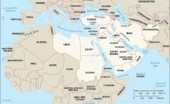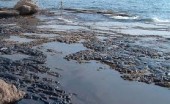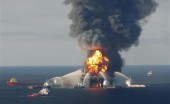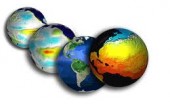Molly Minturn - My family is heartbroken to share that my father died in surgery on Monday, Feb. 10. It…
Alanna Mitchell: The Gulf’s Bigger Environmental Disaster
Written by Diana Thebaud Nicholson // September 11, 2010 // Water // Comments Off on Alanna Mitchell: The Gulf’s Bigger Environmental Disaster
A blowout is not the worst thing.
What we are all doing already every day is the worst thing.
(The Daily Beast) Lost in the outrage over BP is the bigger environmental disaster: We’re doing more damage to ocean life—killing off species by making the water more acidic with burnt fossil fuels—every day than the spill ever could.
Reading BP’s unsatisfying mea culpa listing some of the ways it all went wrong in the Gulf of Mexico, one gets the image of a sticky-fingered school boy standing at the front of the room, hat twisting in his hands, feet shuffling awkwardly as he struggles for words.
It’s bound to fuel more outrage over the oil spill. And still, we’re missing the point: As dreadful as it was to see the oil gush out of that hole day after day, that spill will end up doing less damage to ocean life than if the same crude had been pumped and burned as normal.
Instead of fouling the ocean from below, we’re fouling it from above, invisibly. And we’re doing it every day, harming the ocean in ways scientists have only begun to understand in the past decade or so.
It’s called ocean acidification, and it’s caused by carbon dioxide gas released into the air from burning fossil fuels. In the air, the gas traps heat, causing global warming. But a huge chunk of the gas also gets absorbed across the surface of the global ocean.
Scientists used to think that was OK. Great, they said. The ocean will absorb so much carbon dioxide that it will save us from even worse global warming.
Alas, no. It turns out that the carbon dioxide gas reacts with seawater to make carbonic acid. And there’s been so much gas that we’ve made surface water across the whole ocean 30 percent more acidic that it was before we started fueling our economy on crude and coal in the 1800s. It’s more acidic than it’s been in 55 million years, a shift in fundamental chemistry that runs right across the global ocean.
The more carbon dioxide we put into the air, the more acidic the ocean will become.
Why does it matter? A more acid ocean makes for unhealthy sea life. And not just some of them in a region fouled with oil, but whole classes of organisms that are becoming unable to make shells and bones anywhere in the sea.
Plankton, those wily producers of every second breath of oxygen you breath, will be naked and vulnerable. Fish will swim stupidly toward their predators instead of cagily away. Coral reefs will corrode like a pearl in vinegar.
A blowout is not the worst thing. What we are all doing already every day is the worst thing.
Embryos won’t be able to reach maturity across vast swathes of the ocean. It’s already happening in the Puget Sound, where wild and hatched oysters are in collapse as the waters grow more acid.
And so what? Is it just a question of getting used to life without oysters and caviar?
Alas, no. Life in the ocean controls the building blocks of the living system—carbon, oxygen, nitrogen—and when it dies, so does life as a whole.
Put another way, if everything on land were to die tomorrow, everything in the ocean would be fine. Better. But if everything in the ocean were to die, we would die too.
So, sure, I mourn the gusher in the Gulf. For 87 days it spewed unchecked, fouling the water from 5,000 feet below, sliming sea turtles and pelicans, wiping out shrimp embryos, forming weird methane-fueled dead zones in scarily deep parts of the water, destroying livelihoods. And killing 11 men.
It was the world’s biggest accidental spill of oil into marine waters and it should never have happened, as the BP report this week showed.
But the catastrophe has given us a strange, unwanted gift. It is a metaphor. It lets us see what we were not able to see before. We have the power to injure the planet and to heal it if we choose.
It tells us that a blowout is not the worst thing. What we are all doing already every day is the worst thing.
Alanna Mitchell is the author of Sea Sick: Ocean Change and the Extinction of Life on Earth (University of Chicago Press, 2009), which won the 2010 Grantham Prize for excellence in environmental reporting.



